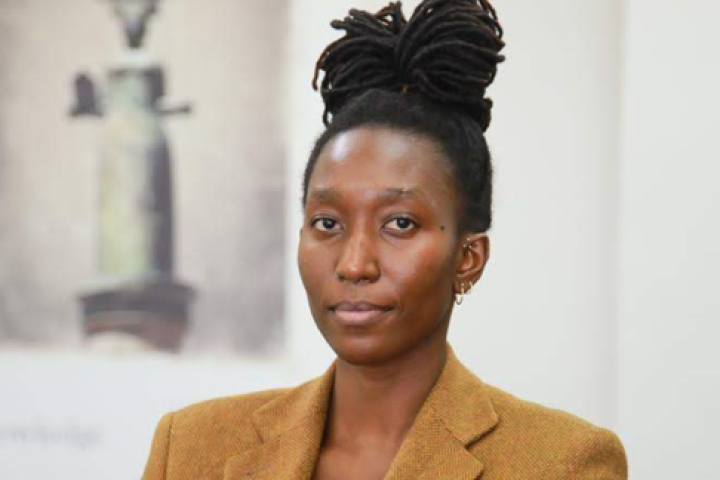Harnessing copyright to strengthen the role of creative and cultural industries

We spoke briefly to Dr Nyehita to find out more about the links between copyright and sustainable development - and the goals that drive her work in this area of Law.
Where are you doing your post doc (which professor / unit/ department)?
I am a Postdoctoral Research Fellow under the SARChI Chair in Intellectual Property, Innovation, and Development at the University of Cape Town (UCT), in the Commercial Law Department. I am very pleased to be working with Professor Caroline Ncube, who holds this prestigious SARChI Chair. This research fellowship provides so many opportunities to connect my PhD work to research that I want to take forward, research that others in the field of Intellectual Property are doing, and the exciting research agenda being driven by Prof Ncube not just locally but in terms of global initiatives.
What is the focus of your work?
My postdoctoral research fellowship projects are focused on the intersection of gender and Intellectual Property (IP) law. The work I am involved with explores the role of IP in shaping the landscape of social innovation and labour market integration for refugee women in South Africa.
Where did you do your PhD, and what was your topic?
I earned my PhD from the UCT in the Law Faculty - my research topic was Regulating for the Equitable Remuneration of Music Artists in Kenya.
How does your post doc work build on your PhD, if at all?
My postdoctoral research builds on my PhD’s main objective of harnessing copyright to strengthen the role of creative and cultural industries as significant contributors to sustainable development in developing countries. It specifically examines how copyright can support innovation in non-conventional forms of creative expression by refugee women in South Africa.
What are you hoping to achieve with your post doc?
There is so much potential for this work - so in addition to working on my own development as a leader and mentor in this field, I am energised by the opportunities to engage with a diverse community of academics, from whom I can learn, relearn, and unlearn lessons in leadership, research, and life. The intersection of intellectual property and gender is particularly compelling, as it allows me to examine how IP frameworks can either enable or constrain opportunities for women, especially marginalized groups such as refugee women, in innovation and creative industries. Working with Prof Ncube as the holder of the SARChI Chair in Intellectual Property, Innovation, and Development, offers the invaluable chance to receive direct mentorship from a leading expert and further deepen my expertise in the field.